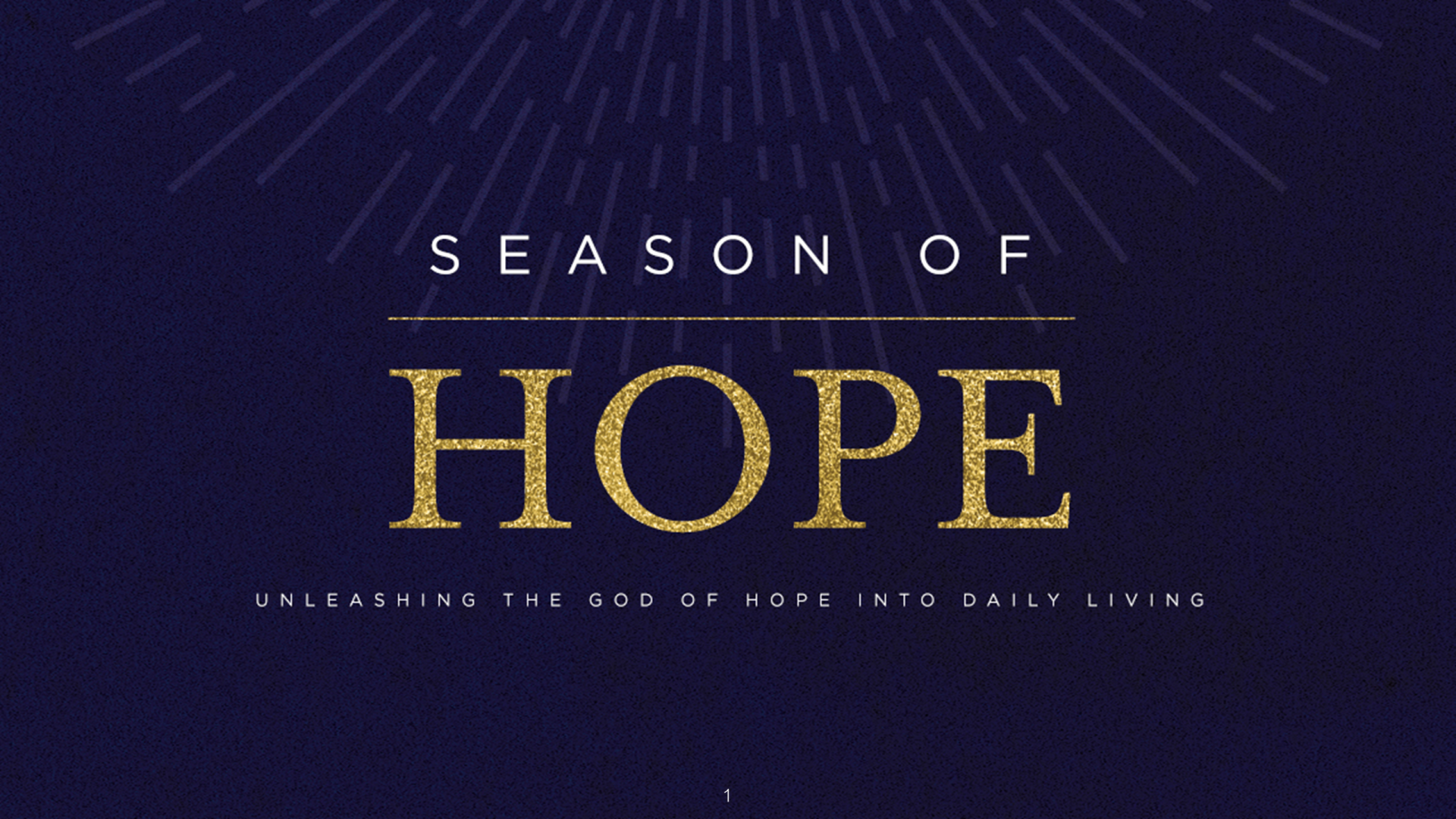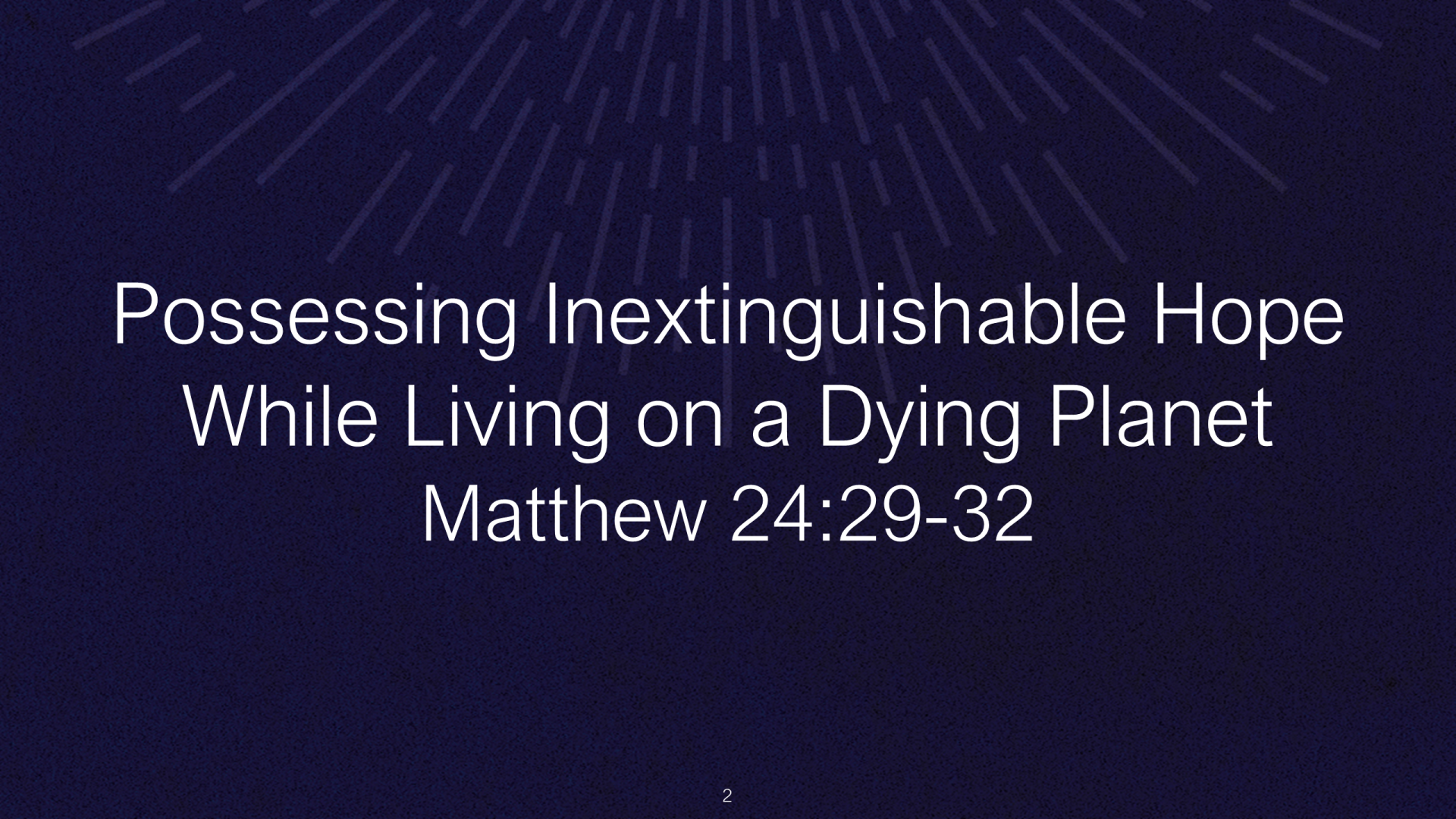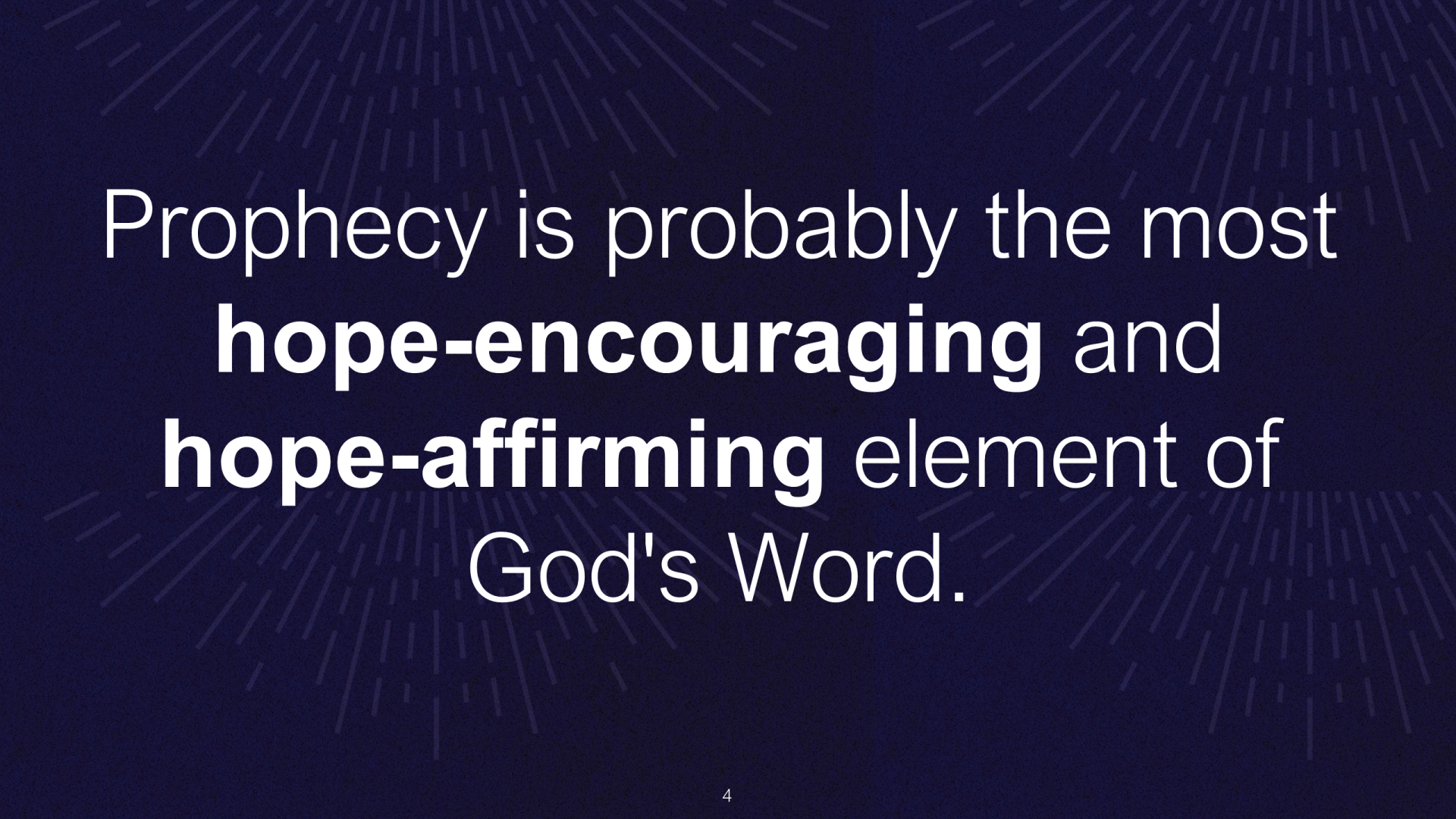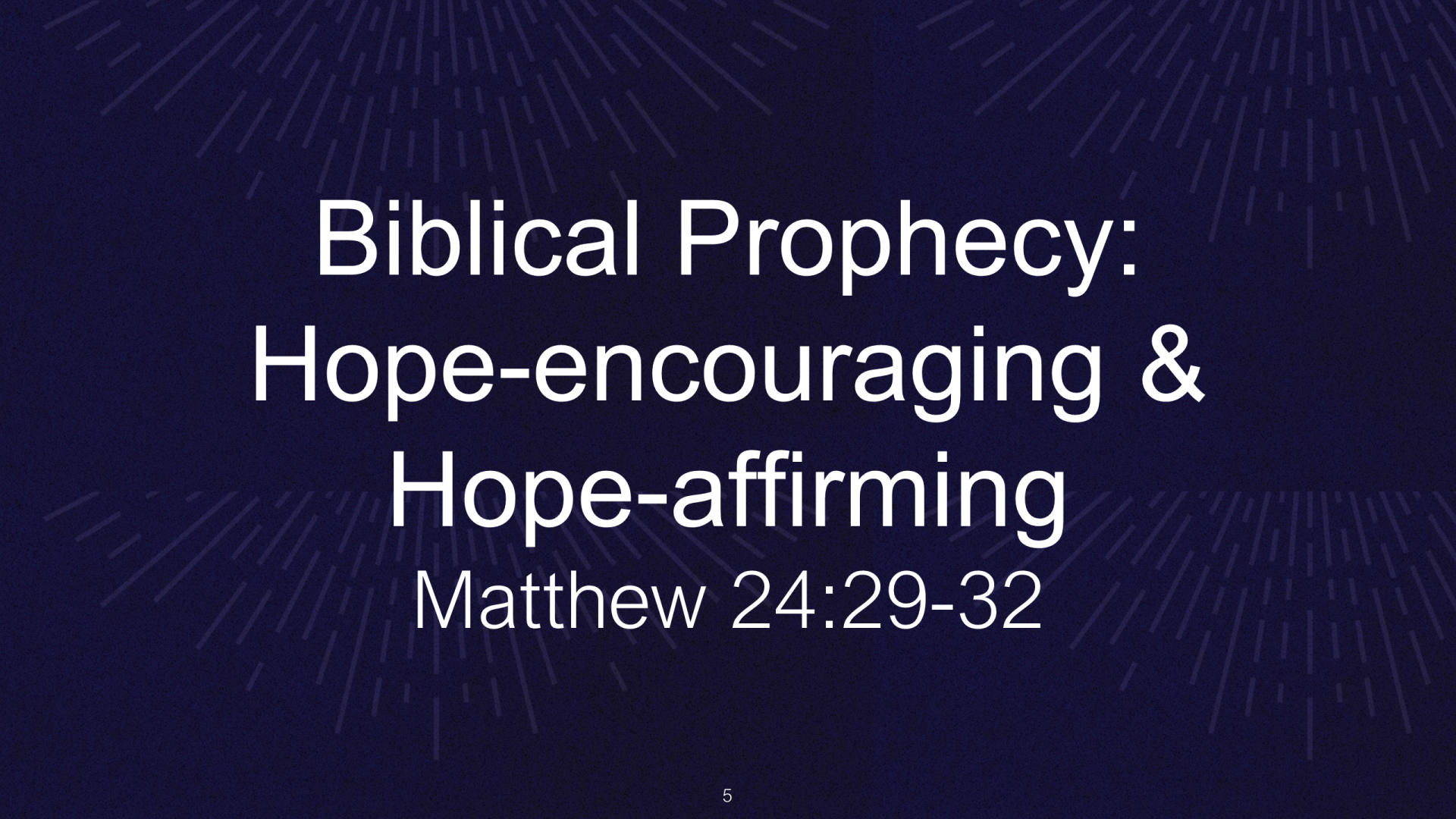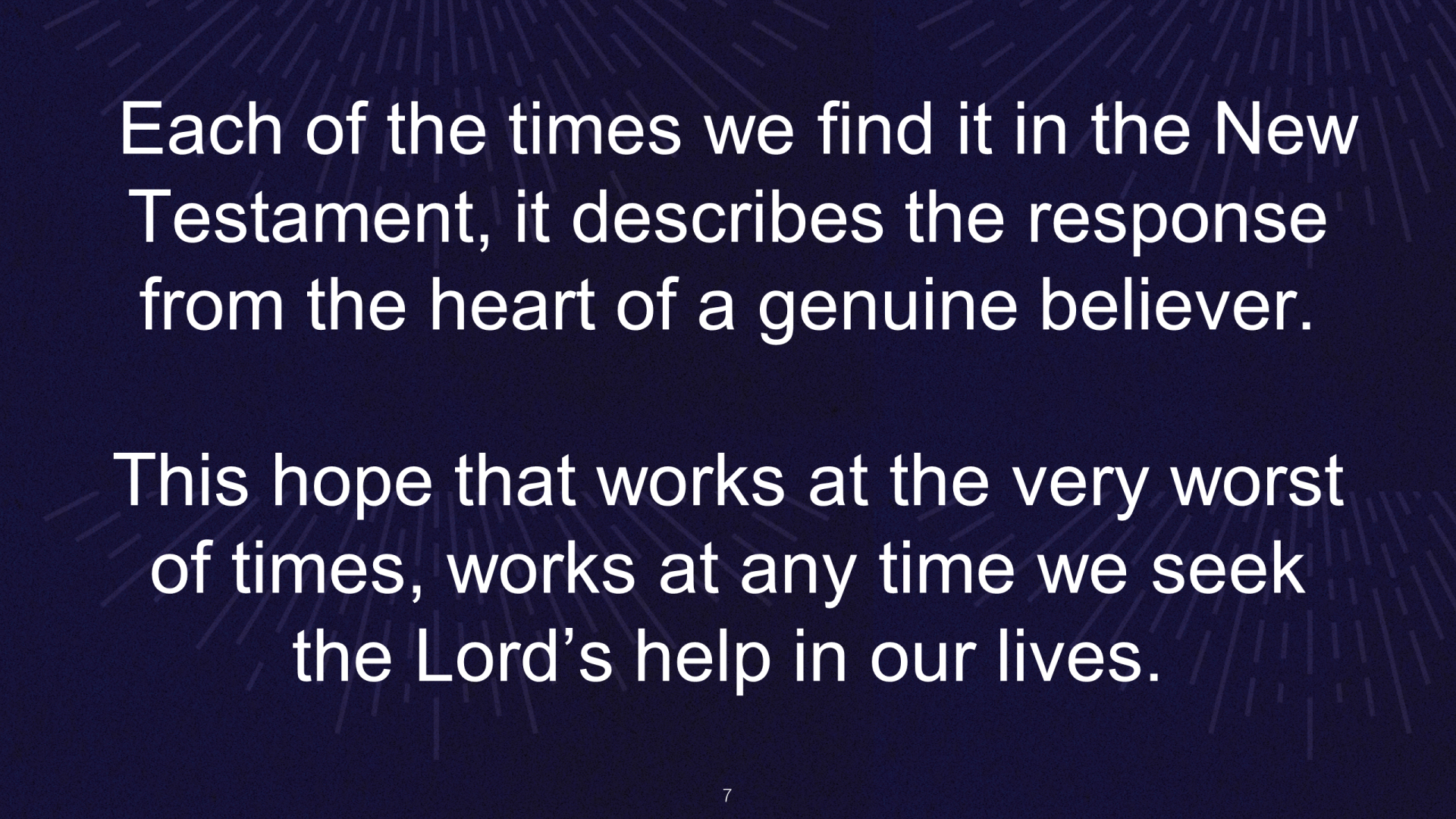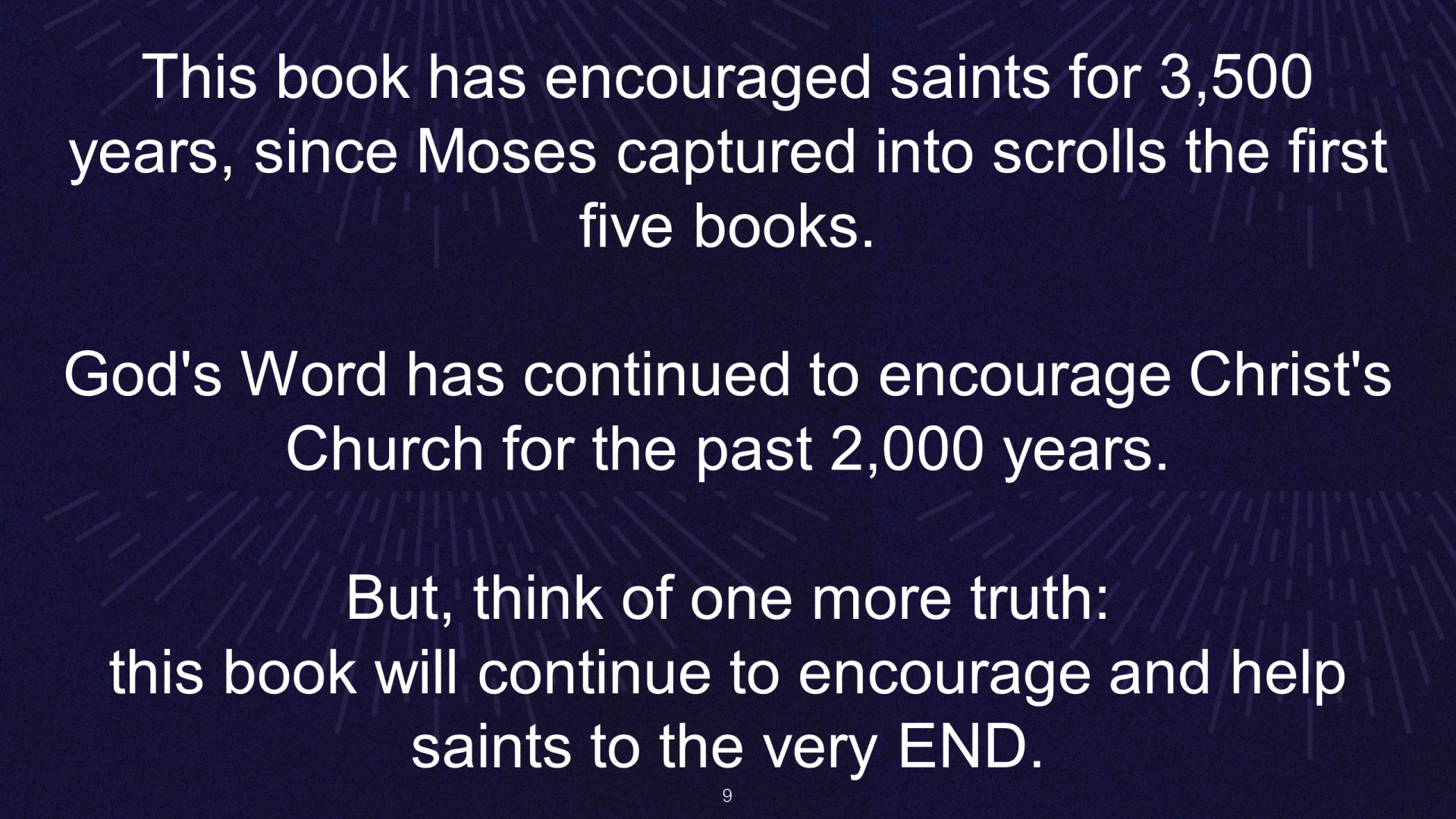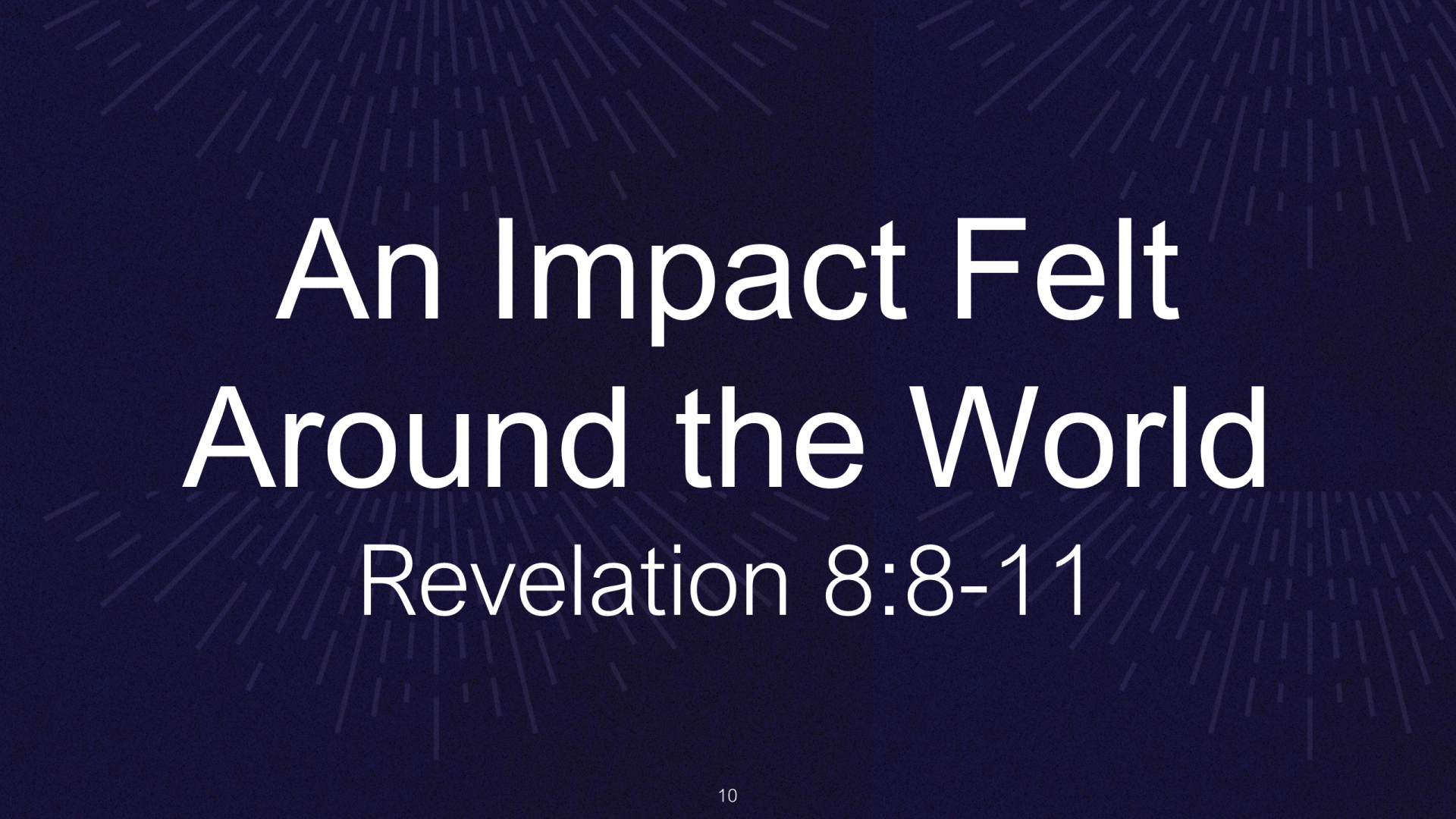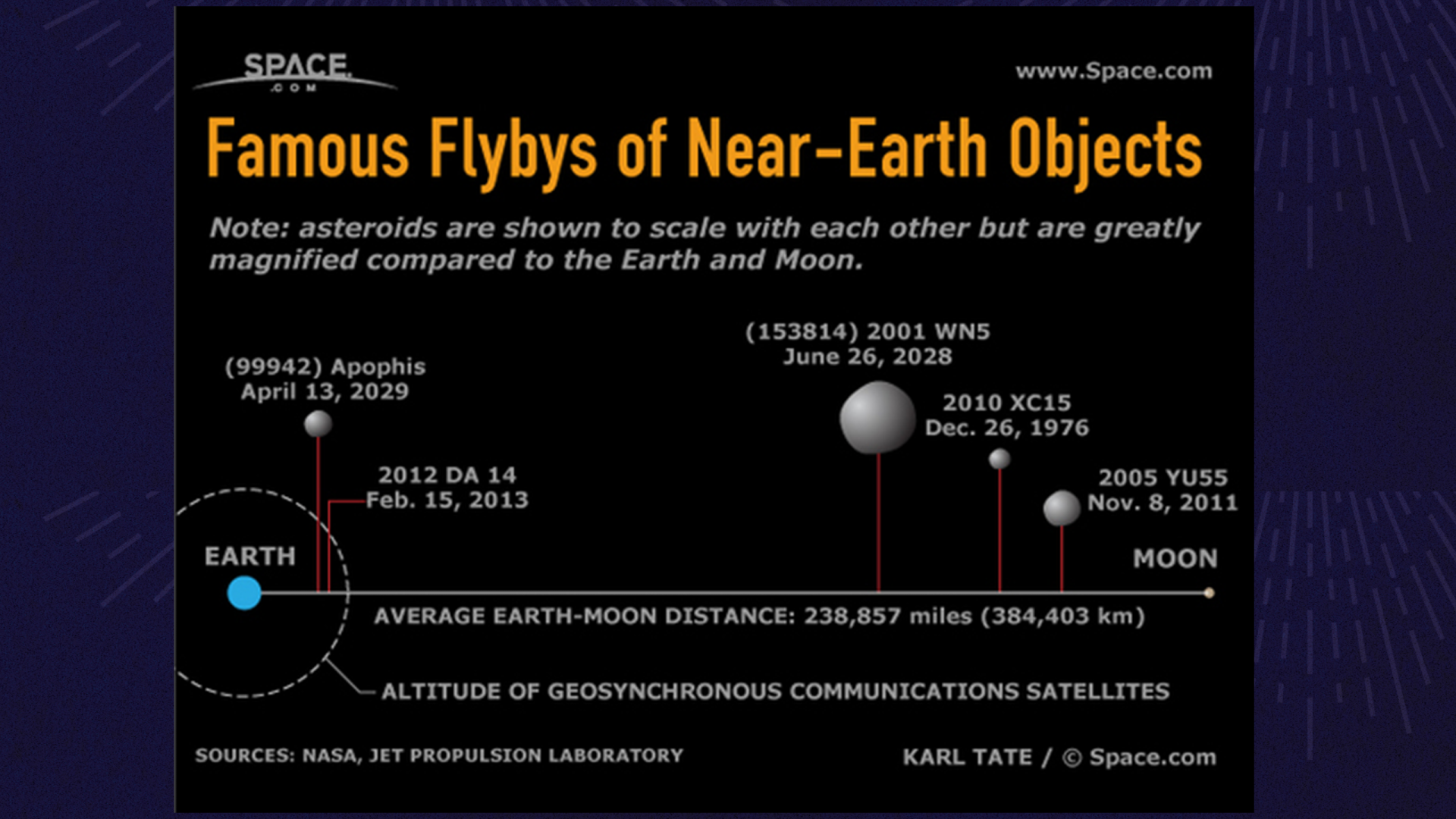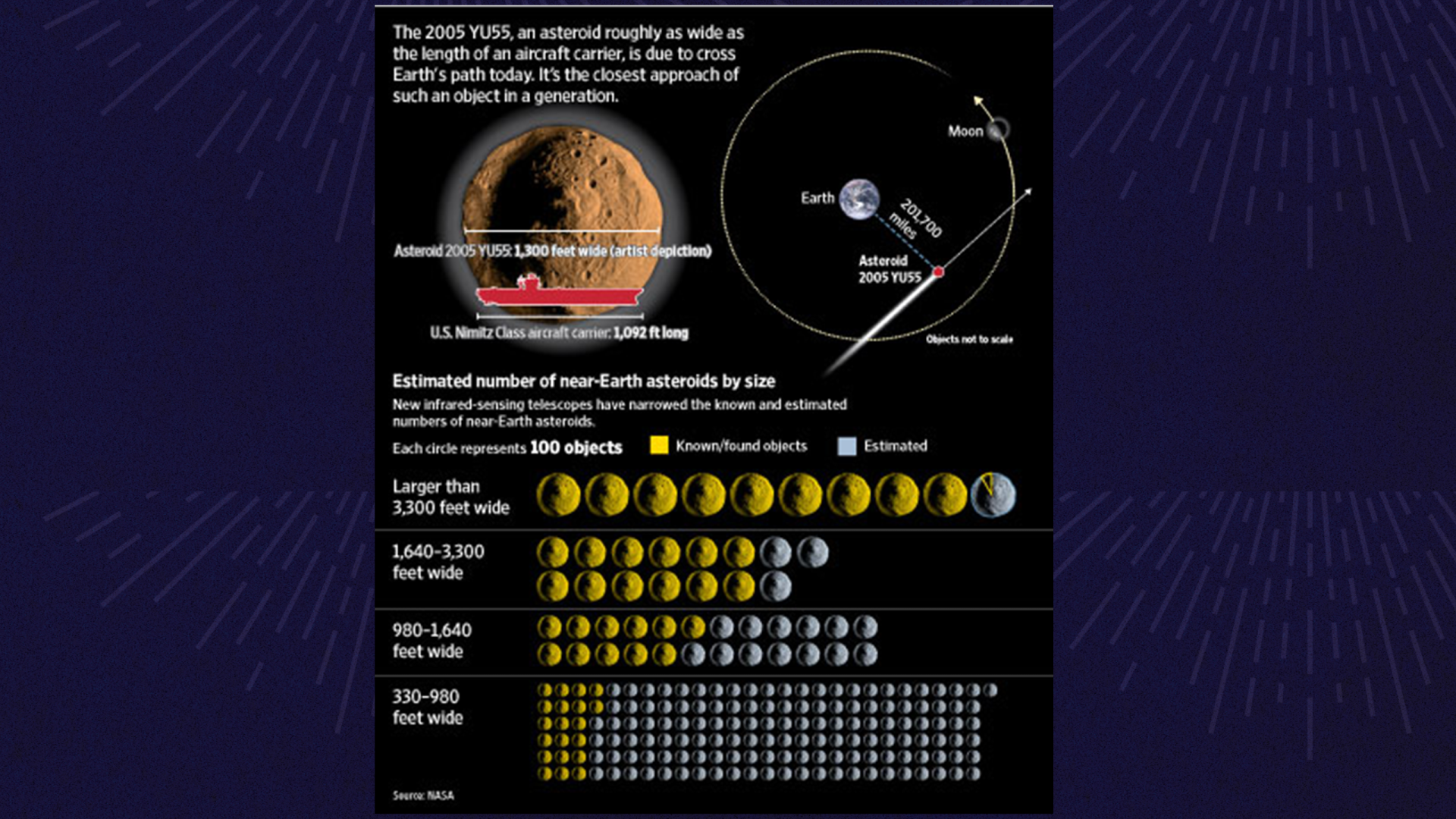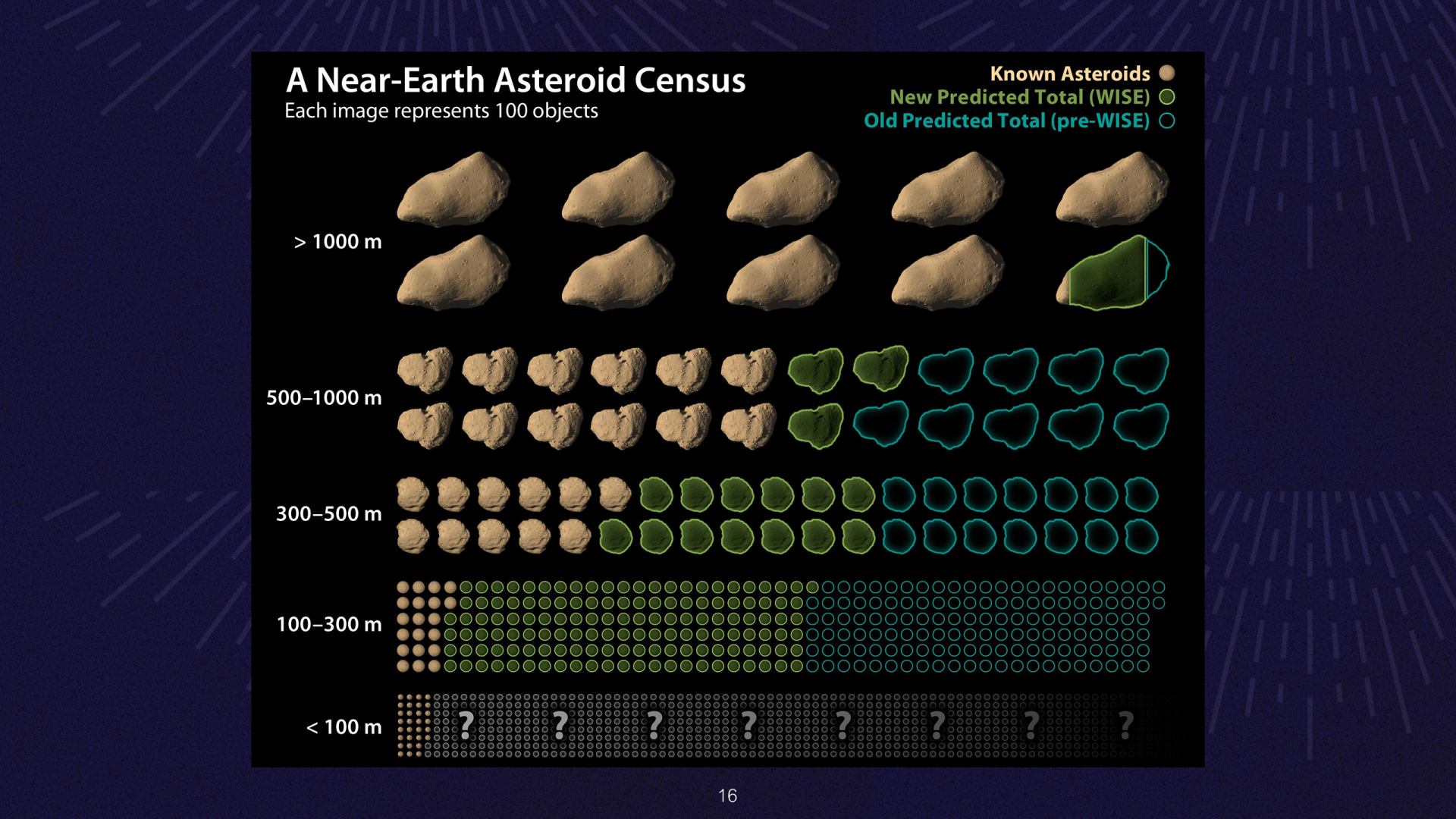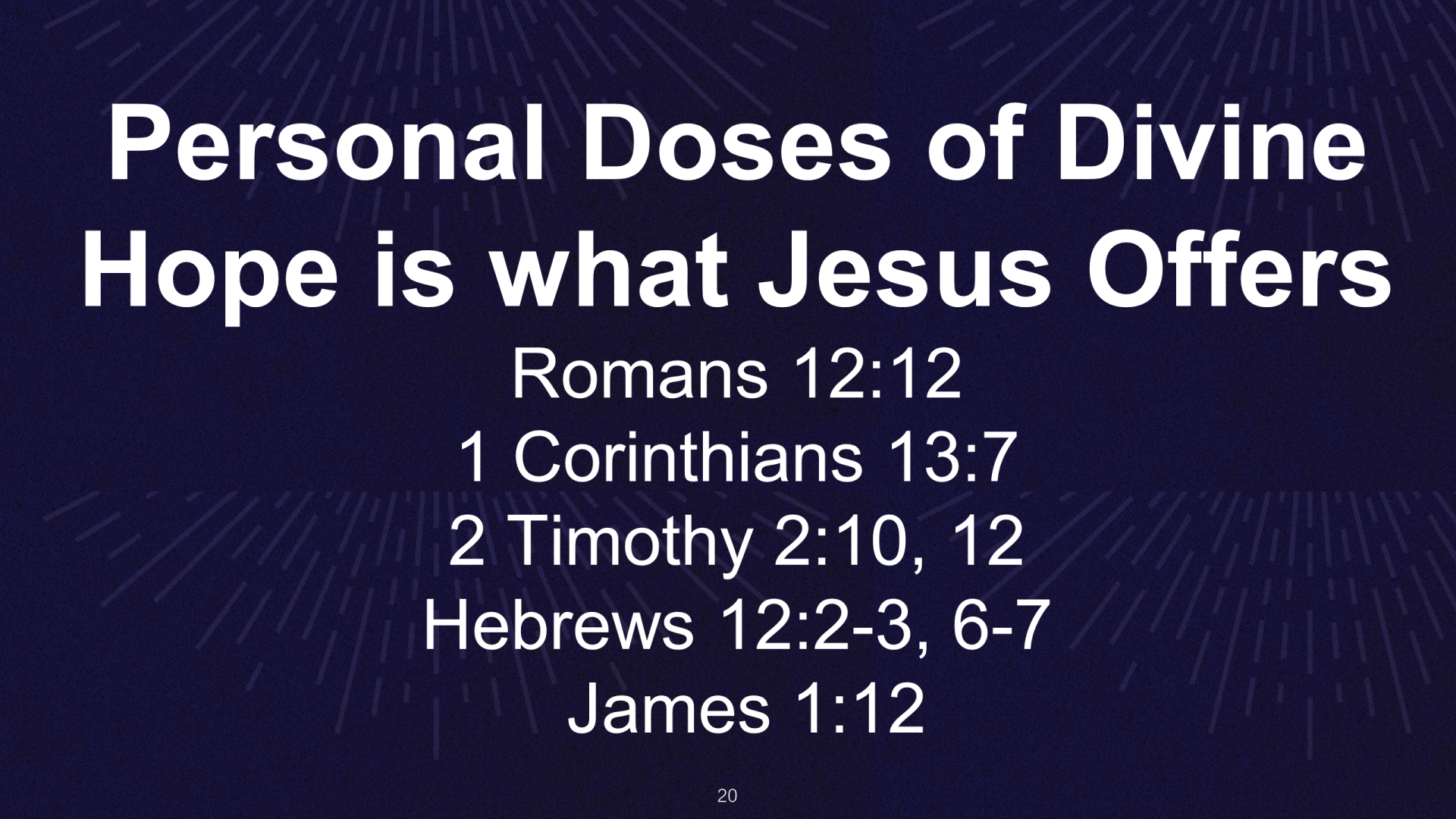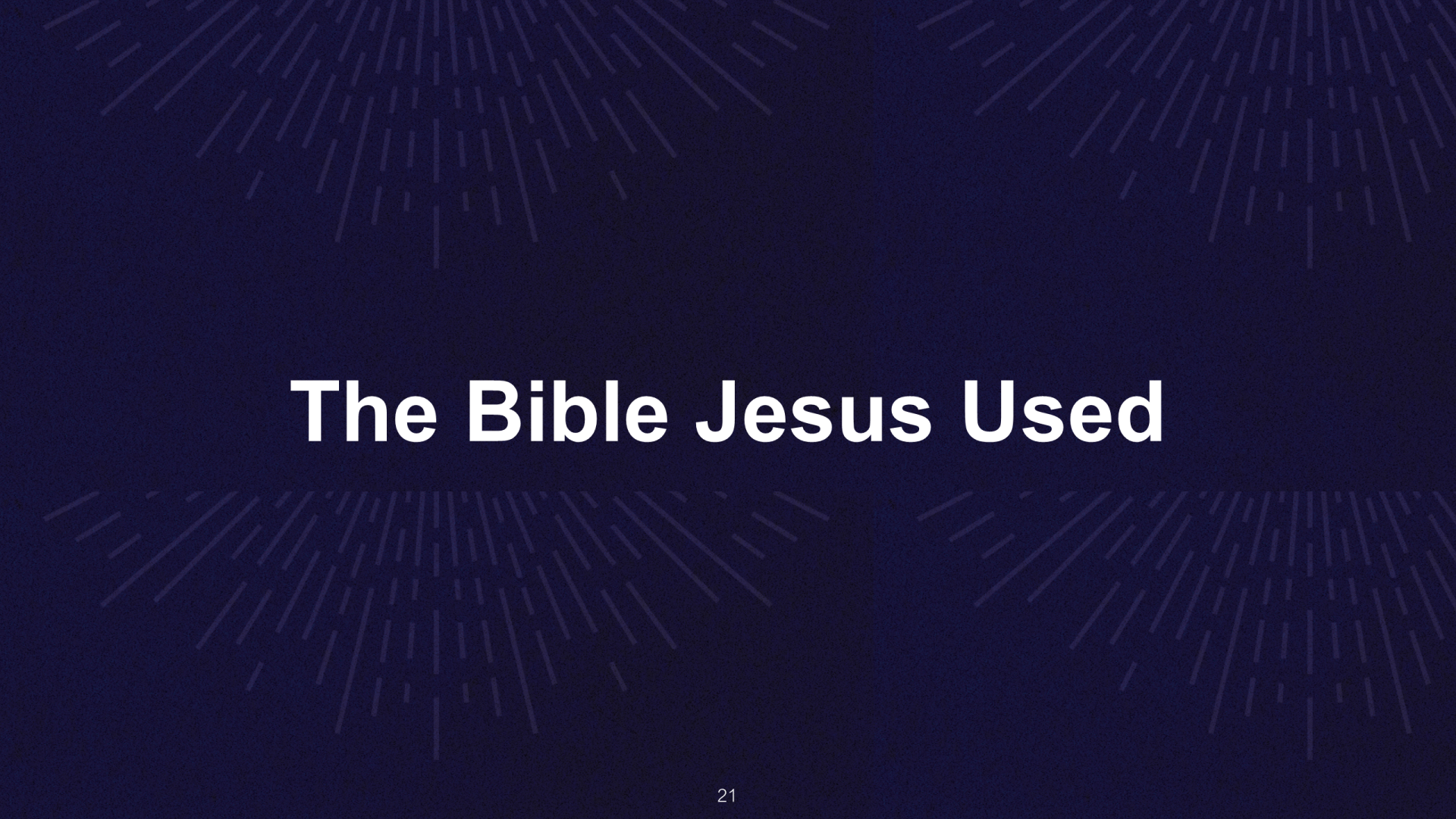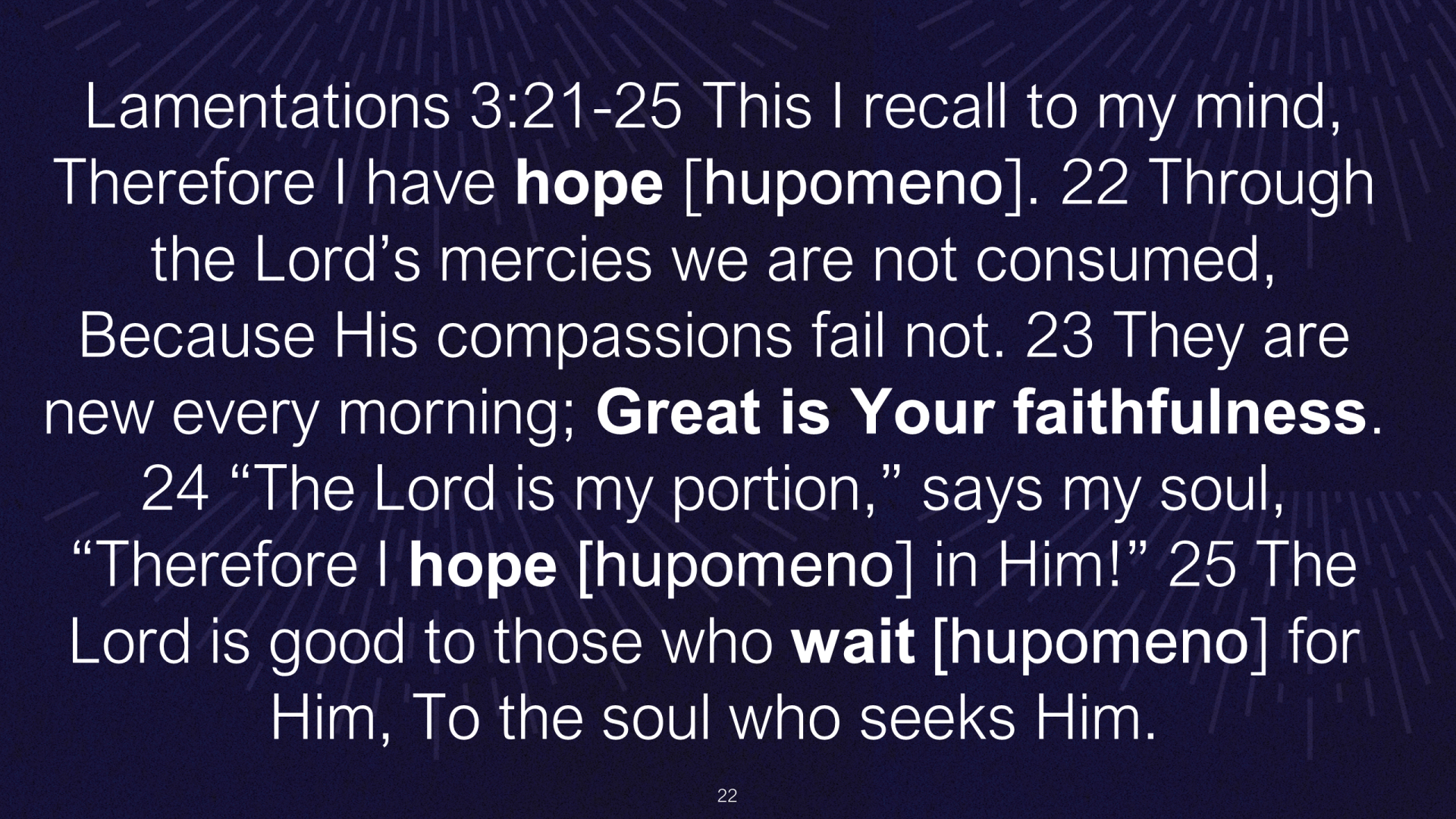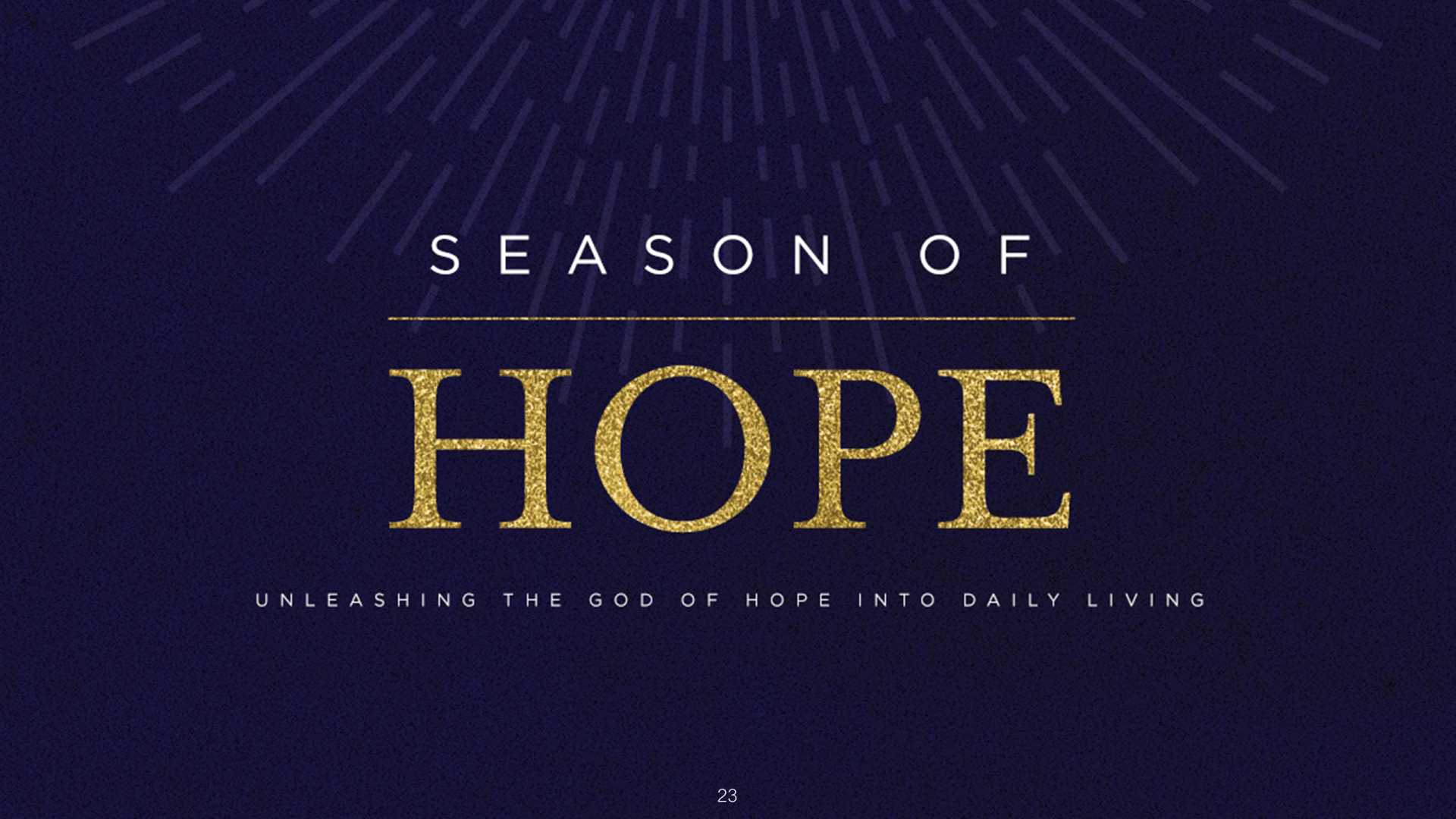If the YouTube video above is not available, here are two other ways to view:
SOH-04
Possessing Inextinguishable Hope
While Living on a Dying Planet
Matthew 24:29-32
True salvation implants an inextinguishable hope within us.
Salvation’s Inextinguishable Hope
Prophecy[1] is probably the most hope-encouraging and hope-affirming element in God’s Word.
Prophecy has inspired God’s hope in the hearts of believers since the very first of the recorded words of God.
It was the teaching on the prophecy of Christ’s Return in the earliest days of the church that inspired them to go on in the daily persecutions from the Roman Empire.
Today it is this same hope we have of Christ’s return that continues to inspire believers to face troubles, afflictions, and wearying persecutions. This morning, as we read the darkest hours of mankind’s earthly journey, note how Jesus weaves into this dark fabric, the rays of HOPE.
If we want to know Christ’s perspective on how to live in hope, here is His explanation of how we can live every day of our live overflowing with his Spirit-prompted hope.
Biblical Prophecy: hope-encouraging & hope-affirming
As we open to Matthew 24:29 we find Jesus describing one of the more fascinating events during earth’s final days.
These words mark the crescendo, the finale, and the very last act of the dramatic entrance of Jesus Christ back onto the stage.
Please stand with me as we hear Christ speak, and especially notice the 6 words captured in v. 29 and ponder what Jesus described in Matthew 24.
Matthew 24:29-32 “Immediately after the tribulation of those days the sun will be darkened, and the moon will not give its light; the stars will fall from heaven, and the powers of the heavens will be shaken. 30 Then the sign of the Son of Man will appear in heaven, and then all the tribes of the earth will mourn, and they will see the Son of Man coming on the clouds of heaven with power and great glory. 31 And He will send His angels with a great sound of a trumpet, and they will gather together His elect from the four winds, from one end of heaven to the other. 32 “Now learn this parable from the fig tree: When its branch has already become tender and puts forth leaves, you know that summer is near.
Pray
Inextinguishable Hope
Now back up to what Jesus said in v. 13, at the opening of this horrifically-bleak panorama of the future.
I want to show you something amazing. Jesus says that something will characterize those who are really His children. No matter what happens before or during the tribulation—His true children never stop clinging in faith and hope to Him. True believers persevere with inextinguishable-hope.
Matthew 24:13 But he who endures to the end shall be saved.
That word “endure” is the Greek word hupomeno.
Each of the times we find it in the New Testament, it describes the response from the heart of a genuine believer.
This hope that works at the very worst of times, works at any time we seek the Lord’s help in our lives.
The enlarged, unabridged-version of what Jesus saw coming, is described by John in Revelation 8.
As we turn there we are talking about an event that has an:
Hope For Every Generation
As we head to the book of Revelation at end of our Bible, think about just whom God’s Word is for.
It isn’t just for us.
This book has encouraged saints for 3,500 years, since Moses captured into scrolls the first five books.
God’s Word has continued to encourage Christ’s Church for the past 2,000 years.
But, think of one more truth:
this book will continue to encourage and help saints to the very END.
You see the group that most need the words of hope are those alive at the END.
As we look at Revelation 8 we see how powerful the hope offered by God can be.
God’s hope works even when the world is literally falling apart and everything else is hopeless.
An Impact Felt Around the World
Listen to what the Apostle John observed and described as a great burning mountain and great star burning like a torch:
Revelation 8:8-11 Then the second angel sounded: And something like a great mountain burning with fire was thrown into the sea, and a third of the sea became blood. 9 And a third of the living creatures in the sea died, and a third of the ships were destroyed. 10 Then the third angel sounded: And a great star fell from heaven, burning like a torch, and it fell on a third of the rivers and on the springs of water. 11 The name of the star is Wormwood. A third of the waters became wormwood, and many men died from the water, because it was made bitter.
What Did John Just See Happening?
After a lifetime of studying the book of Revelation, and reading as many books and commentaries as possible—I am still not sure as to whether the words of that prophecy we just read is a first-century man’s inspired description of an atomic bomb, a super powerful demonic creature’s attack, or if it’s about a comet, an asteroid, or meteorite slamming into the earth.
But we do know that God allows John to see an event as it was happening in the future. This is not merely a prediction, prophecy in God’s Word is: actually seeing an event in the future as it happens.
As John watches, an object near the end of the world, falls from the sky and devastates the Earth. But even in that dire situation, God offers hope that can help and keep believers from giving up. The hope God gives is more powerful than any hopeless situation we could ever face!
Whatever this falling object is, God allows it to poisons a third of the Earth’s fresh water supply, this could be explained as the effect of nuclear radiation fallout; but there are some ongoing discoveries that indicate another possibility. For example:
Near-Earth Objects
It was just eleven years ago that the US government began funding a new branch of astrophysics called the Near-Earth Object Survey or NEOS. The original allocation of $40 million was to survey every near-Earth object 100 meters across or larger for 12 months.
In May 2004 just three months after this project started, a University of Hawaii astronomer and a team from Arizona University discovered a new near earth object (space rock) and took photos until storm clouds blocked the skies.
Six months after that, around Thanksgiving of 2004, some Australian astronomers spotted the object, found it to be an asteroid, and named it 2004 MN4.
A month of calculations later led the astronomers to announce to the world on Christmas Eve of 2004 that this asteroid was on a direct hit trajectory with the earth. Here is what the first verified NEO report said that was published in newspapers around the world:
Scientists calculated that with all available data, the asteroid: “would impact with the Earth on Friday the 13th in April 2029. But what they concluded was that Asteroid 2004 MN4 was a “regional” hazard – only enough to flatten Texas or a couple of European countries with an impact equivalent to 10,000 megatons of dynamite – more than all the nuclear weapons in the world combined.” [2]
One thing became certain twelve years ago, the scientific world now had the instruments in hand to detect and track space rocks that were so small that they were not previously tracked; but that could wreak enormous destruction on this planet.
As with any other unexpected news, this caused a surge in anxiety for a couple of months, but was soon forgotten.
Then, some good news on that coming danger was announced in 2013:
The Earth is safe from the giant asteroid Apophis when it flies extremely close to our planet in 2029, then returns for seconds in 2036, NASA scientists announced today (Jan. 10). The chances of an impact in 2036 are less than one in a million, they added.
Asteroid Apophis — which is the size of three and a half football fields — was discovered in June 2004 and gained infamy after a preliminary study suggested it had a 2.7 percent chance of hitting the Earth during its 2029 flyby. Subsequent observations ruled out an impact in 2029, but astronomers were closely studying Apophis’ return in 2036[3].
But as we look at Revelation 8, think about what it would be like on the ground when that future event happens.
God shows us a flaming object crashing to earth.
Something from space (a comet, a meteorite, or something else) hits the earth and poisons 1/3 of the drinking water as we all have learned is already in short supply. The result is that “many” people die from this water poisoning.
But Earth has already been hit by big asteroids, and is hit twice a month by smaller asteroids.
Great Meteors have Already Struck Earth
Did you know that astronomers[4] have concluded that a giant space rock strikes Earth, and leaves a huge crater about every 150 years?
Here in the USA we have made a national monument out of a one mile wide, six hundred foot deep meteor crater in Arizona.
Earlier this year on my way to Los Angeles I leaned over to Bonnie’s window seat, and watched Meteor Crater in Arizona go by. By the way, that one hit Earth in the 5,000 years since the time of Noah’s flood since we can still see it. Right? The flood erased the mountains, valleys, and craters across the planet when everything erupted, flooded, swirled and left a mile deep layer of flood sedimentation across the entire planet.
But, what size of space rock does it take to scoop a hole, a mile wide and 600 feet deep, into the Earth?
That meteorite was just 20 meters (or 66 feet) wide. That 600-foot-deep (180-meter) hole in the ground, popular now with tourists, is less than 5,000 years old and was created by a space rock so small that another one like it might not be noticed until it hits. We can only detect 100-foot wide rocks, that one was just 66 feet wide!
What if that sized rock hits Newark, New Jersey, 10 miles (16 kilometers) from Manhattan as the crow flies? Not as much damage as you would think. Other than Newark, NYC would be spared and only feel a moderate earthquake of magnitude 4.7 rattles the region. New York City has handled such temblors in the past and largely endures. No significant ejected materials hits Manhattan, and winds reach an insignificant 3.7 mph.
But what about a “star”, an asteroid that is bright, flies earthward and gets as bright as the sun–flaming downward through the atmosphere as it burns away at superheated entry velocity of miles per second? Well if a small say “9.3-mile-wide (15-kilometer) asteroid — the estimated size of the suspected dinosaur killer – drops onto on San Francisco.
The Bay Area doesn’t do so well.
The resulting crater, at 113 miles (181 kilometers) wide, pretty much tells the story. The entire metropolis vanishes faster than you can say where you left your heart. What isn’t consumed is knocked over in an earthquake of magnitude 10.2, bigger than any in recorded history. Heat from a scorching fireball would turn much of the state, and parts of others, into toast.
The quick death experienced by most Bay Area residents turns out to be a blessing compared to the slow, searing, suffocating death that Los Angeles residents face.
When Death gets Inescapable
About 10 seconds after impact, radiation from the fireball sears Southern California, igniting not only the clothing people are wearing, but even the plywood on the outside of homes.
Within two minutes the ground under Hollywood begins to shake. Weak brick structures crumble. Concrete irrigation ditches are damaged. Frame houses not properly bolted to their foundations are knocked off. Even tree branches fall.
And then it gets nasty.
Six minutes after impact, much of earth that used to be under San Francisco has soared high into the atmosphere and begins to fall on the City of Angels (and just about everywhere else). Ultimately, a blanket of ejected material nearly 18 feet (5.5 meters) deep is deposited in and around LA.
After about 21 minutes, stuff shot out from the world’s largest new crater starts to rain down on the East, depositing a half-inch blanket across the city. About 3-1/2 hours later an 8-mph wind arrives.” [5]
So, that would be the incalculable loss of physical property, and the unimagineable loss of tens of millions of human lives just in America, for just this one event of what will be a non-stop horror show that every person alive in the Tribulation will be experiencing non-stop right to the end!
Look back at Matthew 24:13 again with me.
Jesus Offers Inexhaustible Hope
I want to repeat something amazing.
Jesus says that inexhaustible hope will characterize those who are really His children.
No matter what happens before or during the tribulation—His true children never stop clinging in faith, and hope, to Him.
True believers persevere.
Matthew 24:13 But he who endures to the end shall be saved.
That word “endure” is the Greek word hupomeno.
Each of the times we find it in the New Testament, it describes the response from the heart of a genuine believer. This hope that works at the very worst of times, works at any time we seek the Lord’s help in our lives.
Because whether at the end of the world, or just trying to make it through another day:
Personal Doses of Divine Hope is what Jesus Offers
We are to take God at His Word.
As we study and believe His promises in the Bible, we are surrendering to the Holy Spirit, who unleashes Divine hope into our lives.
The hope God plants in the hearts of His children, true believers, can endure anything. Why not follow this trail through the New Testament and see what I mean.
Romans 12:12 rejoicing in hope, patient in tribulation, continuing steadfastly in prayer;
1 Corinthians 13:7 bears all things, believes all things, hopes all things, endures all things.
2 Timothy 2:10, 12 Therefore I endure all things for the sake of the elect, that they also may obtain the salvation which is in Christ Jesus with eternal glory. 12 If we endure, We shall also reign with Him. If we deny Him, He also will deny us.
Hebrews 12:2-3, 6-7 looking unto Jesus, the author and finisher of our faith, who for the joy that was set before Him endured the cross, despising the shame, and has sat down at the right hand of the throne of God. 3 For consider Him who endured such hostility from sinners against Himself, lest you become weary and discouraged in your souls. 6 For whom the Lord loves He chastens, And scourges every son whom He receives.” 7 If you endure chastening, God deals with you as with sons; for what son is th
ere whom a father does not chasten?
James 1:12 Blessed is the man who endures temptation; for when he has been approved, he will receive the crown of life which the Lord has promised to those who love Him.
The lesson is that the hope Jesus gives us can endure anything!
Now comes the fascinating part—look back down as James 1:12, that very same Greek word for hope is used in the Old Testament that Jesus and His apostles studied. It is the very word for the hope we have been studying these last few weeks.
How do I know that? Because it is in:
The Bible Jesus Used
If Jesus went to the Family Christian Book Stores this week to buy a Bible, what version would He buy?
Have you ever thought that?
We can find the answer to that question in the Bible you hold in your hands.
The grouping and ordering of the books in the Old Testament Hebrew Bible is different from what Christians have in their Bibles because the Christian Bible adopted the order in the Septuagint, a Greek translation of the Hebrew Bible.
The Septuagint[i], or the first translation of the Hebrew Bible, was made in the third century B.C. by Jewish scribes, who were descendants of those trained in Ezra’s Great Synagogue of Jerusalem. These men were very well versed in Hebrew and Greek.
Jesus and the Apostles studied, memorized, used, quoted, and read most often from the Bible of their day, which was called the LXX (Septuagint). When Jesus quotes the Old Testament in Matthew He uses the Hebrew text 10% and the Greek LXX 90% of the time.
Quite naturally, the early Christians also used the Septuagint in their meetings and for personal reading; and many of the New Testament apostles quoted it when they wrote the Gospels and Epistles in Greek. The order of the books in the Septuagint is the same order in our Bibles today.
So if you had a Septuagint Old Testament bound to your New Testament, you would notice the same Greek words used to describe New Testament truths are used for describing similar Old Testament truths. Look back again at Lamentations 3, the passage that most conveys hope in all of the Old Testament:
Lamentations 3:21-25 This I recall to my mind, Therefore I have hope [hupomeno]. 22 Through the Lord’s mercies we are not consumed, Because His compassions fail not. 23 They are new every morning; Great is Your faithfulness. 24 “The Lord is my portion,” says my soul, “Therefore I hope in Him!” 25 The Lord is good to those who wait [hupomeno] for Him, To the soul who seeks Him.
This passage reminds us of how this hope that can endure and triumph through anything, even the very worst times of all the history of the planet, can be ours each day.
In fact we each got this hope planted within us the instant we were saved.
That’s our great God.
Great is Thy Faithfulness, O God my Father.
There is no shadow of turning with Thee.
Thou changest not, Thy compassions they fail not;
as Thou hast been thou forever wilt be.
Appendix:
A Prescription from The Great Physician
So what possible blessing could ever come from such a desperate condition of affliction and hurt? Look back at this passage because it contains the greatest message of Hope in all of God’s Word. This is what our Faithful God offers:
- His Hope comes to us when we fail—God always offers HIS UNFAILING LOVE:
Lamentations 3:22 Through the Lord’s mercies we are not consumed, Because His compassions fail not.
Jeremiah didn’t say he was perfect- he said I know that I am weak and what the Lord revealed to him is even if we fail, God’s love never fails. The Lord’s mercies, his compassions, they fail not. He loves us with an unfailing love.
- His Hope comes to us when life seems monotonous–look what the Lord promises- HIS DAILY FRESHNESS:
Lamentations 3:23 They are new every morning; Great is Your faithfulness.
Have you ever thought about how monotonous life could be without God’s faithfulness, His newness and His freshness? My dad did almost exactly the same job for General Motors for 46 years. The same job, at the same plant, every day for almost half a century. That may have been seen as monotonous.
Not for dad. Each day his lunch pail was packed and in was stuck the Bible study book he was currently studying. Dirty, greasy, dog-eared, marked up and priceless. He used those coffee breaks and lunch hours to devour God’s Word. My dad never tired of going to work because he found daily refreshment in God’s Word!
Look at this 23rd verse- what he says: They are new every morning—into our monotonous lives, God if we will allow Him to, inserts daily freshness. There is such a newness in our walk with Christ everyday because He is faithful and when we are afflicted, we realize how faithful He is. Look at verse 24-
- His Hope comes IN OUR WEAKNESSES – He gives us a PERSONAL DOSE OF STRENGTH:
Lamentations 3:24 “The Lord is my portion,”
I have with Bonnie fed 8 children from their first meal onward- when they stopped the milk regimen and went into the real food as we call it, I remember how you sit there on your plate and you chop, chop, chop this way, then you chop, chop, chop that way. Sometimes you mash, mash, mash some of those peas and squash in there when they are not looking- into the potatoes so they will get a good balanced meal.
I remember that I would have this little tiny spoon that was only about this big. I didn’t use the serving spoon, I didn’t use the ladle to put in to that little mouth, I know what portion they would be able to handle so they wouldn’t choke on is.
Look what he in verse 24- “The Lord is my portion,” says my soul, He knows the personal dose of strength I need in my weakness “Therefore I hope in Him!” – He said my soul is weak, the Lord knows the dose or portion I need. Therefore I hope in Him.
- His Hope comes IN OUR OFTEN FRANTIC LIFESTYLES – HIS PROMISE OF BLESSINGS:
Lamentations 3:25 The Lord is good to those who wait for Him,
You want a great study? That word “wait” is one English word and you will find that word all the way through the Old Testament. There are 8 different Hebrew words translated into English—wait. You know waiting is really important to God. Waiting is very foreign to us. Yesterday as we were driving down 131, a fancy big black, jacked up SUV blew by me. I pulled up beside him toodling along at the stop light at Stadium. He had passed me five minutes ago but that light is so long—I edged up like this so he would notice me—and before the light turned, he ran the red light and squealed around like that.
To the soul who seeks Him—Our lives are often frantic but God promises a blessing to
those who wait for Him.
- His Hope comes INTO OUR ANXIOUS LIVES – HIS SALVATION GIVES QUIET HOPE:
Lamentations 3:26 It is good that one should hope and wait quietly for the salvation of the Lord.
What he is giving us is—- Jeremiah is telling us what he learned in his affliction. What did he learn when he had broken physical health, deep emotional strain- verse 5, dark depression- verse 6, when he had desperation and felt trapped- verse 7, and when he felt out of touch and distant from God in verse 8 of chapter 3.
When he was frustrated and confused in vs. 9, when he was anxious and sad in vs. 17, when he was physically weak and hopeless in verse 18 and when he had bitter affliction in verse 19— what did he learn? He said this is what I learned in verse 26, we hope and wait quietly.
- His Hope comes INTO OUR CONFUSING LIVES – He writes HIS PERFECT PLANS: We kind of end where we started, it says in
Lamentations 3:33 For He does not afflict willingly, Nor grieve the children of men.
He says this is not just capricious, it is not roulette living, it’s not happenstance, God has a plan. When affliction comes, as this 33rd verse says, it’s not an affliction that is a willing, you know—– just want to rattle your cage a little bit and just cause you some problems— No— He has a plan.
If we will wait quietly before Him, and say Lord, I want what You are teaching me. He will bring into our lives everything that I just shared with you from verse 22 all the way down to verse 33 of Lamentations.
- Into our failures He will bring His love
- Into our monotonous lives he brings freshness. Everyday He will open the windows of blessing
- Into our weakness, He will give us a little spoonful of what we need, our personal dose of strength
- Into our frantic life styles, He promises blessing if we wait for Him
- Into our anxious lives with anxiety, He gives us a quiet hope that is serenity in the midst of the storm
- Into our confusion, He says I have a perfect plan
That’s our great God. Great is Thy Faithfulness, O God my Father. There is no shadow of turning with Thee. Thou changest not, Thy compassions they fail not; as Thou hast been thou forever wilt be.
[1] 100328AM WNS-38
[2] Popular Mechanics, December, 2006; http://www.popularmechanics.com/science/air_space/4201569.html
[3] Space Magazine 1/10/2013 http://www.space.com/19221-asteroid-apophis-earth-safe-2036.html
[4] http://www.space.com/scienceastronomy/mystery_monday_040412.html
[5] Catastrophe Calculator: Estimate Asteroid Impact Effects Online, By Robert Roy Britt, Senior Science Writer; posted: 06:30 am ET, 12 April 2004 http://www.space.com/scienceastronomy/mystery_monday_040412.html
[i] Comfort, Philip W., The Complete Guide to Bible Versions, (Wheaton, Illinois: Tyndale House Publishers, Inc.) 1991. Since Matthew wrote primarily to convince the Jews that Jesus of Nazareth was indeed their promised Messiah, it follows as a matter of course that his Gospel is saturated with the Hebrew Scriptures. When Jesus faced off with the liberal, unbelieving religious leaders of His day in Matthew 22:32, He made His point about the resurrection by quoting the LXX of Exodus 3:6 verbatim. That means He knew it, memorized it, and used it at the climactic moments of His ministry. In Mark 7:6 Jesus quoted Isaiah 29:13 word for word from the LXX. In Mark 12:10-11 He quotes Psalm 118:22-23 verbatim from the LXX. In Luke He quotes almost exclusively from the LXX. Paul also uses the LXX as does Peter and Hebrews almost always quotes the LXX. Phillips, John. Exploring the Gospels, Matthew. Neptune, New Jersey: Loizeaux Brothers Inc., 1999, p14 . “There are 129 Old Testament references (53 direct citations and 76 allusions) taken from 25 of the 39 books. Of the 129 references, 89 were made by the Lord Himself (35 citations and 54 allusions). Matthew drew from every part of the Jewish Bible: the Law, the prophets, and the Writings. Some of the citations were taken from the Hebrew text (12 total, Guthrie, NTI), but most were taken from the Septuagint (117 total), the Greek version of the Old Testament.” The Septuagint (LXX) was the Hebrew Old Testament translated into Greek. After his conquest of the Babylonian Empire, Alexander the Great promoted the Greek language throughout the known world, and thus almost everyone – including the Jews – spoke Greek. Hebrew fell into disuse, being reserved primarily for ceremonial purposes (like the use of Latin among Roman Catholics). In order to make the Jewish Scriptures (what we call the Old Testament) available to the average Jewish reader, a project was undertaken under the sponsorship of Ptolemy II Philadelphus (285-246 BC.) to translate the Hebrew Scriptures into Greek. Seventy scholars were commissioned to complete this work and their result is known as the “Septuagint” (“70”) translation. (This is often abbreviated “LXX”. Missler, Unexpected King, online. ) According to Jewish legend, in ca. 250 b.c., Ptolemy Philadelphus brought together 72 scholars who translated the Old Testament into Greek in 72 days. Thus, the Latin word for 70, “Septuagint” (LXX), was the name attached to this translation. John F. MacArthur, Jr., The MacArthur Study Bible, (Dallas: Word Publishing) 1997.

